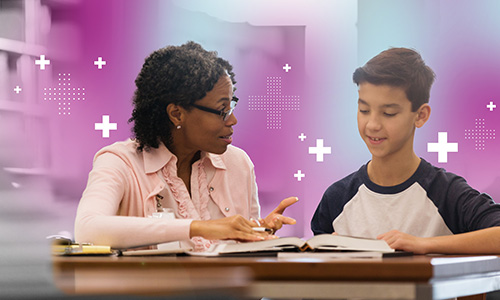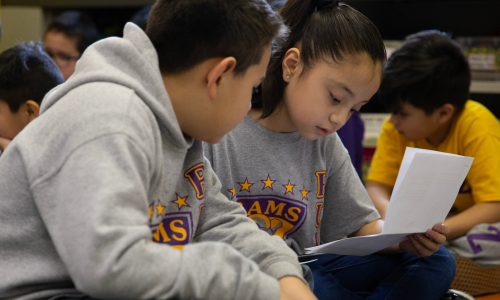
Stop me if you’ve heard this one before: A famous study on delayed gratification asked a few dozen children to sit in a room alone with a marshmallow. The researcher promised each child that if they could wait and not eat the marshmallow, they would get two marshmallows at the end of the study. The children who waited, the follow-up studies showed, had better life outcomes, educational attainment, and a host of other positive attributes decades later.
On its face, this study seems to show that patience and willpower are strong characteristics we can observe in the youngest children and that they can predict what will happen throughout their lives. Reality, of course, is rarely that simple.
What happens when we dig deeper
One follow-up study to the marshmallow test showed that family background, cognitive ability, and children’s home environments explain most of the outcomes. In another, children were more likely to delay gratification when they knew a teacher or peer would find out what they did, not because of any innate qualities. In yet another follow-up (with the genius title “Rational snacking”), whether children ate the marshmallow depended on how much they trusted the researcher who was giving them their instructions.
These all add up to the conclusion that a child’s environment, rather than who they are, has the most to do with whether and how they delay their gratification.
Be skeptical
I think about the marshmallow study a lot as a classic example of the dangers of relying on a single study to tell us how the world works.
Studies find continued positive impacts from professional learning on teachers with up to 15 years’ experience, particularly when more complex aspects of their practice—like their ability to generate classroom discussions or handle students’ mistakes—are explored.
Maybe you heard about the original marshmallow study from an article or a podcast (or even from Cookie Monster) and built the study’s conclusion into the way you think about how people work. Unfortunately, the follow-up studies don’t get nearly as much attention, and you’re left remembering a conclusion that’s just plain wrong given what we now know.
Another research idea that’s almost as famous is the finding that teachers stop improving after three to five years into their career. This idea seems to have started from a single study by the economist Jonah Rockoff, and it took off from there—it was even included in a TED talk by Bill Gates. If you were to take these studies as the last word, professional learning for teachers after they’ve reached their fifth anniversaries wouldn’t seem like a particularly valuable investment. The reality, however, is far more complicated.
The case for professional development, well beyond year five
A recent brief by the Research Partnership for Professional Learning highlights the progress made on this question since the early 2000s. Follow-up studies find continued positive impacts from professional learning on teachers with up to 15 years’ experience, particularly when more complex aspects of their practice—like their ability to generate classroom discussions or handle students’ mistakes—are explored.
Much like our marshmallow researchers’ work, these follow-ups don’t get nearly as much press, but they are just as important in our understanding of how professional learning works and what it has to offer teachers later in their careers.
An especially critical instructional practice is effectively applying MAP® Growth™ data to support instructional decisions. As we know, giving a MAP Growth assessment isn’t enough on its own to change student outcomes—and expecting it to isn’t realistic. Our professional learning focuses on how MAP Growth data can inform instruction and on the ecosystem of supports inside and outside of the classroom that can help educators shape classrooms that are more responsive to student needs, support ambitious instruction in the content areas, and focus on student equity.
Understanding the complex relationship between professional learning and student outcomes is key to the NWEA professional learning theory of change. There is no magic content or type of experience that works for all kinds of teachers (or students) at all times and in all situations. Instead, we design and deliver our learning around high-quality professional standards, align the focus of our learning with critical instructional practices that change outcomes for students, and measure the impact of that learning on teachers and students. These data points together tell the full story of how learning by teachers changes their practice, which, in turn, changes what happens in classrooms.
An especially critical instructional practice is effectively applying MAP Growth data to support instructional decisions.
Looking at the full picture of the supports educators need is undoubtedly more complicated than focusing on one single tool or one all-important technique. However, taking a broader view is what research says time and again is necessary to produce changes in student outcomes that are widespread and sustained over time.
Question the status quo
When you’re looking at any evidence of the effectiveness or ineffectiveness of an educational practice, apply some healthy skepticism. Most importantly, don’t take one study’s word for it; look for confirming or disconfirming research, or use tools like the meta-analyses of researcher John Hattie to understand what dozens or hundreds of studies have to say about a particular practice.
Education is a social activity; the context around a particular learner can greatly influence whether a given practice does or doesn’t work well for their learning. Applying a dose of healthy skepticism every time you encounter research findings about education can help ensure the decisions you make in your practice are sound and focused on how to help your students learn best.







